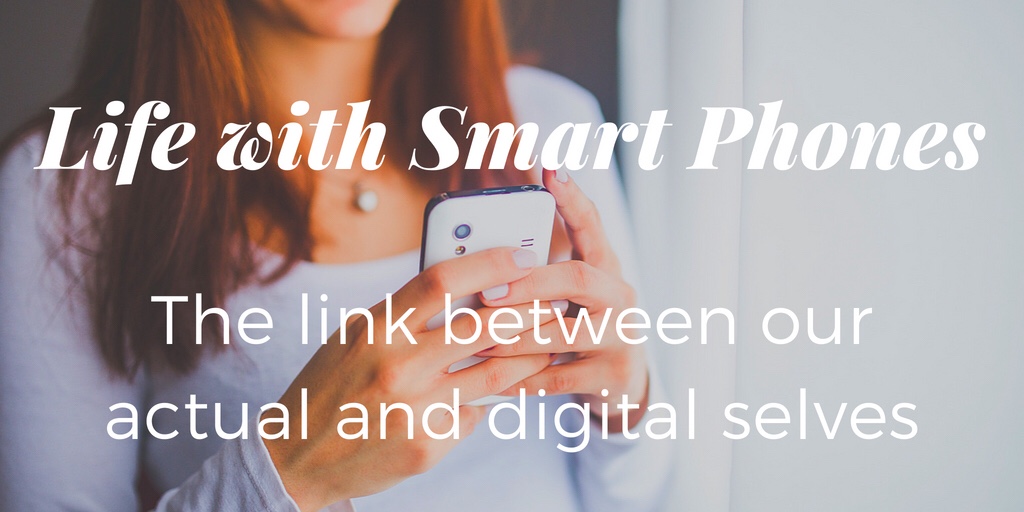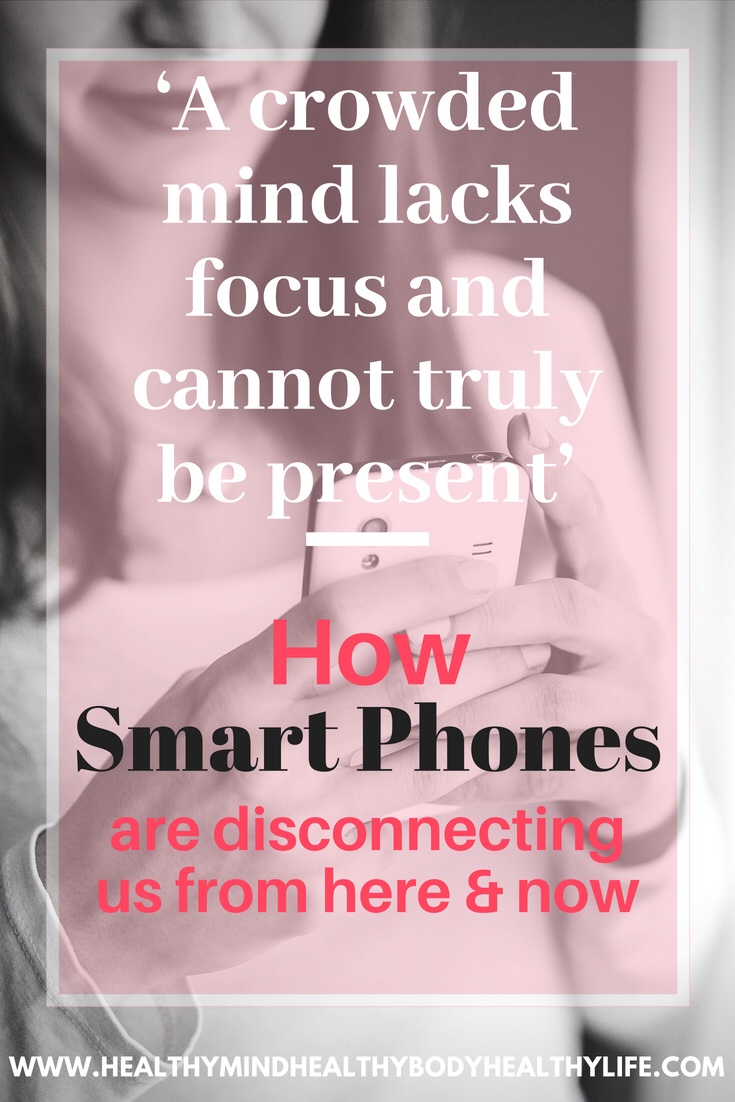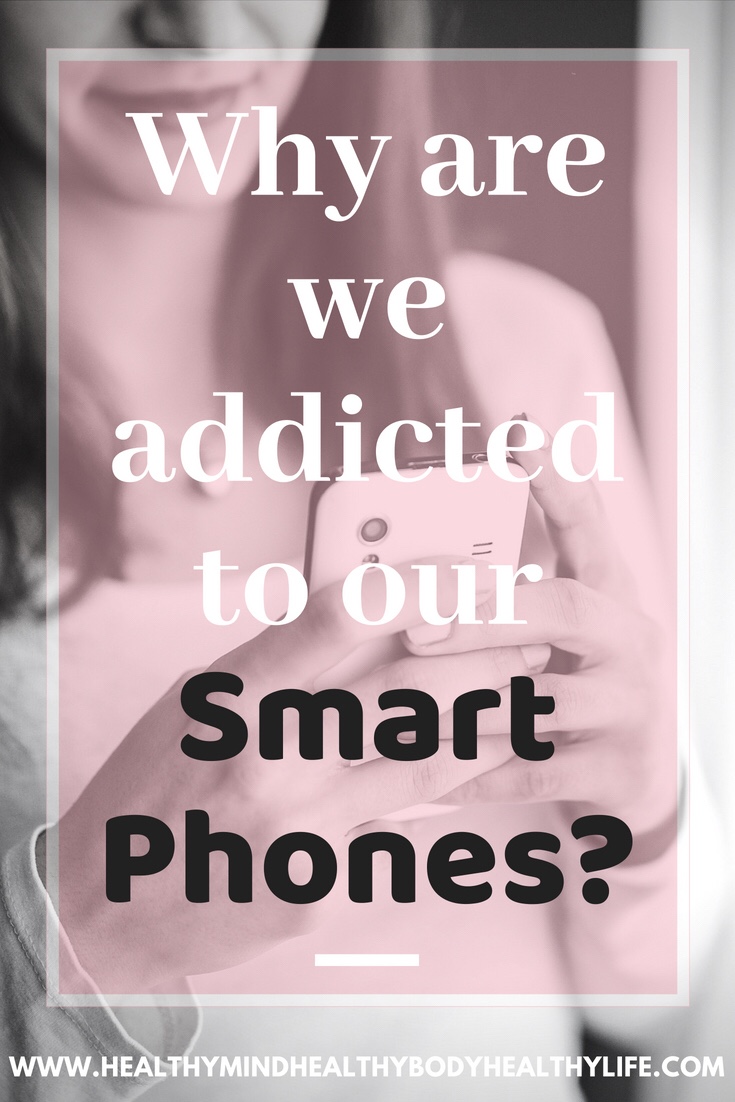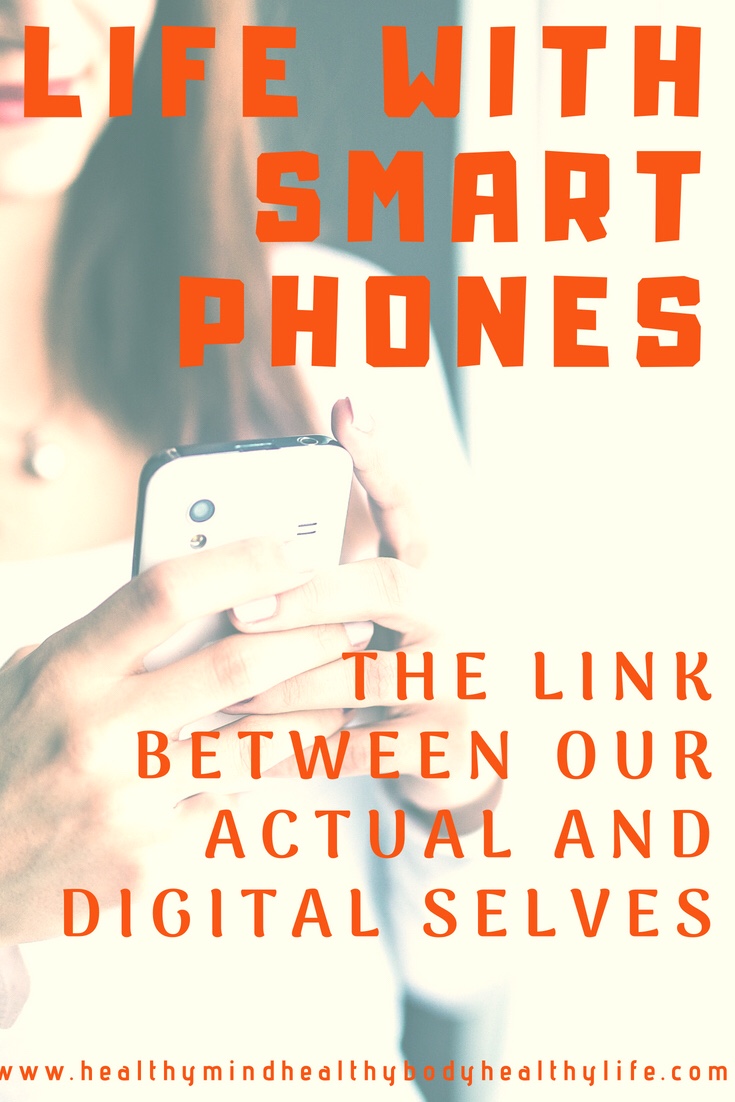 There has been a lot of discussion around smart phones in recent years. Whether they are actually good for us. Our guest post today by Joe Robinson asks some probing, loaded questions regarding phone usage. He also suggests practical ways to manage your phone use so that you control it, rather than the other way around. I hope you find this post as thought provoking as I did. Enjoy:
There has been a lot of discussion around smart phones in recent years. Whether they are actually good for us. Our guest post today by Joe Robinson asks some probing, loaded questions regarding phone usage. He also suggests practical ways to manage your phone use so that you control it, rather than the other way around. I hope you find this post as thought provoking as I did. Enjoy:
“The future is happening. The human condition is changing. Increasingly, the irrevocable forces of climate change, technology, and globalization — as well as stunning advances in medicine and science — are reinventing what it means to be human.” — Future Human, Medium 6th July 2018.
The evolving and changing nature of humans is fascinating. There has been a lot written on Medium about this recently. The quote above is broad and I wanted to hone in on technology and specifically smart phones.
I am in my very late twenties (six months before a change in decade!). Therefore, I have grown up through significant changes in technology. One of these being the introduction of smart phones into the world. I love the aspects of how smart phones have changed the way we can experience the world and open new opportunities. Smart phones can be viewed as an extension to our bodies. They could be called the link between our actual and digital selves.
However, I have also seen smart phones create bad habits and anti-social behaviors. Below you will find some questions on smart phones that hint towards unhealthy use:
- The minute you are alone whether this be at home, at work, in a café, or on a train, do you reach for your phone to check it?
- Do you find yourself picking up your phone and looking at it for no apparent reason? Or do you believe you hear it ring / feel it vibrate only to find out that it did not do either?
- When walking down the street have you ever had to change your path to move out of the way of some else, head down on their phone? Or have you walked into someone/something trying to use your phone and walk somewhere at the same time?
- When you are talking with people in a social situation do you /they ever seem distracted by a phone? Even if it is just in their hand or on the table. Or have you ever started a conversation for it to be interrupted or broken?
*ping* “sorry hang on one sec” *phone out tap tap tap* “what where you saying?”
*looks up from phone* “sorry what did you say again?
- Before going to bathroom, do you make sure you have your phone so you can use it whilst on the toilet?
- Do you have your phone by your bed at night? Is it the first thing you check when you wake up?
Although the questions are loaded I would not be surprised if the answer was yes to many of them. I can certainly relate to all of them.
Being able to connect with the whole world in an instant is incredible. Who would have thought that you would be able to have a face to face conversation with someone on the other side of the world. In real time! It would be called magic not that long ago; actually it may be more accurate to say a face to screen, face to screen conversation.
The advancement in what we can do on our phones is for the most part wonderful. However, I get frustrated when I see smart phones, and all they are associated with steal us from the present moment. Creating a dis-connect from actual human interaction in the here and now.

Why are smart phones stealing us from the present moment?
Dopamine
is a neurotransmitter and precursor of other substances found in the body such as adrenaline. Dopamine is important in many functions linked to the brain such as thinking, attention, mood and reward.
Smart phone applications and notifications trigger dopamine releases in the pleasure areas of the brain. Which can result in pleasure-seeking behavior. This is also similar with some drugs. The pleasure-seeking behavior is shown in the form of constant phone checking, responding to notifications immediately and endless scrolling on social media or online videos etc.
In addition, what tends to happen with this pleasure-seeking behavior is that over time the brain gets use to the activity. The dopamine release lessens and therefore more reward is needed to get the same results. This leads to more phone checking, more phone use in an unstructured way and bad habits. Leaving a feeling of dissatisfaction.
Immediate gratification
is something smart phones are great at. All the answers on the internet are in the palm of your hand a few clicks away. This is both good and bad. What happens when other areas in our lives do not yield immediate gratification?
Career, relationships, family, saving money, creating the lives we want to live all take time, dedication and patience. Our lives are an incredible journey of experiences. Not being able to get what we want, how we want it, in the way we want it instantly, makes what we do work for and create, even more fulfilling.
The information we can obtain from our smart phones is often instant. Therefore, it is all too easy to default to smart phone use rather than spend our attention on the important areas in our life formerly mentioned. These important areas are often right in front of us in the present moment, such as the person you love living in the same place as you.
Information overload
is so prominent in the world today. There is so much information that it can be all consuming. However, the information is not the problem. The problem is that it is so much more readily available. Our smart phones hardly ever leave our sides and thus a worlds worth of information is always with us.
How can we possibly focus on what we want to think, feel or do when we are consuming too much information that we do not necessarily need. Often internet content that comes to us through our phones have a catchy headline or an evocative story, but more often than not they do not benefit us. They only steal our attention, haze our thoughts, drain our energy and potentially give us emotions without us knowing where these emotions came from. A crowded mind lacks focus and therefore cannot truly be present.
Shorter attention spans.
On a smart phone if something bores us we can we can switch it instantly. This does not translate to the real world. Out of respect and human decency we should be able to give our undivided attention to other people when we interact. Referring back to my opening questions, I have witnessed that unfortunately undivided attention without phone use is becoming more rare and this can affect real life human interactions.
I strongly believe that good listening is one of the most valuable skills you can have. Good listening requires a good attention span. Training our brains to jump from one thing to another through our phones is not going to help this.
Multi-tasking
is studied and talked about frequently. Smart phones give us a connection to multiple things at once. The problem is that our brains have limited attention and energy before needing to recharge.
For instance, if you have a very important project to work on you would understandably need to allocate time and energy into completing it. However, if your phone and the digital world is notifying you of various messages, emails and updates on social media then this will inevitably interrupt you and you may even get distracted completing other tasks. Switching between your important project and the small tasks that may pop up on your phone will take its toll on your energy. Although it may feel productive for a short period. Ultimately you will achieve less having switched between multiple things, not really completed anything fully and feeling exhausted.
Not only does multitasking take up more energy and is often less efficient. The very essence of multi-tasking means we are not focusing on one thing. Stealing us from the present moment and our intended most important task.
It is vital that we understand how using our smart phones — the link between our actual and digital selves — affects us and those around us.

How can we stop smart phones from stealing us from the present moment?
Having read the previous section, it may look like I am anti-smart phone. I am not. I use a smart phone in a way that positively assists my life. It is easy to talk about negatives effects of smart phone use and how they affect our lives. It is much harder to change the negative effects and implement a strategy for positive smart phone use. I am not perfect in my smart phone use. In fact I have quite often joked when out with my fiancée about being anti-social on my phone, laughed, and then gone back to finish what I was doing on my phone. Ironic?
Paying attention to your phone behavior is the first step in implementing change.
My first step was noticing that I was always more distracted that I thought I was. The way I realised this was asking myself a few questions:
- Why am I using my phone right now?
- Is what I am doing on my phone so important that it has to be done now?
- Is what I am doing in the real world right now more important than being on my phone?
If we think mindfully about how and why we are using our phones, it will lead to healthier and more intentional use. Being aware of how you use your phone will be the most important step.
A few examples of habits that can be argued as unhealthy use of your phone are: responding to whatsapp messages as soon as they come in. Checking the response on social media every minute after something had been posted. Or refreshing emails to see if anything new has come in . I personally believe emails are not necessarily needed on your phone. Unless they are vital for work it would be good to consider this.
There are a number of apps that can assist you to analyse this. They can give you statistics on how many hours you spend on your phone and how many times you pick your phone up. I recommend consciously observing your phone use in a day/week. Then ask yourself: is this time well spent and could it be better used?
It is all too easy to fall into bad habits, and use our phones in an unconstructive way forming bad habits. Just because we are used to carrying it around with us most of the time, does not mean we have to get it out to check it every two minutes.
Manage your notifications settings.
Unmodified notifications can work against us. It is not unusual when I talk with people on this topic to find out that they have the standard notification settings on their phone without looking into how they can customise them.
I spoke earlier on multi-tasking, and notifications can be linked to this. Every time we are distracted by a sound or vibration our phone makes, it then takes time and energy to re-focus on what it was we were doing. Multiply this numerous times throughout the day and it can cause mental fatigue and reduce productivity in a big way.
Do you ever reach and check your phone when you hear other phones ring or make a sound? I am guilty of this even if I know it is not my phone.
I use an iPhone and took some time going over all the settings relating to notifications. The result was that I turned the majority of them off. I also utilise the ‘Do not disturb’ for periods when I want a deep level of focus.
Keeping call notifications on is useful so people can reach you if it is urgent. Calls can also be managed in the ‘Do not disturb’ function. For example, setting favourite contacts to call even in ‘do not disturb’ means you do not miss the important people calling you.
The only other notifications I have on are my calendar and reminders. Both of which I control what goes into these and therefore what I get notified about.
It is a personal choice whether you wish to be notified from other apps and you may need whatsapp or email on for work demands. Even in this case I would possibly argue against this.
Choosing to effectively manage your notifications means that when your phone does alert you it is usually for something that is important and deserves your attention. Furthermore, you can then choose the best time to respond to email, messages or be on social media at a time that suits you. With intention.
Choosing an appropriate time to respond to different channels.
Once the majority of notifications have been turned off, it would not be unreasonable to wonder about missing out on aspects that you do not actually want to miss. This is where planning time to check and respond to channels that you find important is key. This involves setting up approximate time periods to respond to different channels, such as whatsapp messages, Facebook messages, Instagram photo comments etc.
For example, you may check and respond to emails, twice a day or once a week depending on your requirements. Whatsapp or text messages could be every hour or once a day. Time spent on social media may be twice a day or once a week, again depending on your needs.
When you use your phone or how often you use the applications is not necessarily the important part. The important part is that you set the time you want to respond to them and you control when you respond to them rather than allowing your phone, and others taking that control away from you. Unnecessary notifications steal your valuable attention . In addition, when you do choose to respond to these aspects on your phone with intention you will do so in a more focused way and therefore get more out of what it is you are doing.
If it is urgent people will call.
Emergencies and anything urgent will not be missed. If someone really needs to get through to you, they will find a way.
Use the time you spend on your phone to develop healthy habits.
What you may find once you have tracked how you use your phone; when you are managing your notifications and being more intentional in response is that periods of time open up in your day.
Use this time to do something productive.
Plan new and exciting meals. Do some exercise. Read a good book or article. Call a loved one for a catch up. Relax and refresh.
Every small positive action you do will give you a sense of accomplishment. When done regularly, will grow into habits that create success and happiness.
It is up to us to figure out what works for us through experimenting and when we find something that works, having the discipline to keep doing it.
Using a smart phone can have a huge benefit in our lives when they are used in a positive way. Don’t let smart phones use your time without your permission. The present moment is the moment we should be living in and doing the most important things to benefit our lives.
Closing gratitude: I am grateful for the benefits that technology bring and for having a mind that is self-aware and able to put things into perspective.
Call To Action:
If you loved this thought provoking article as much as we did, check out more of Joes writing on medium.
- Do you have an addiction to your smart phone?
- What are your thoughts on the direction modern technology is taking and its affects on in person interactions?
- Will you implement any of Joes strategies on your own phone?
We would love to hear from you in the comments below. Be sure to subscribe so our next post is delivered directly to your inbox
Love and Light
Lauren



Great article Joe. I agree. However, for me, out in the back of beyond, my smart phone keeps me connected to the people I love. I am addicted to it but it’s because of this connection xxx